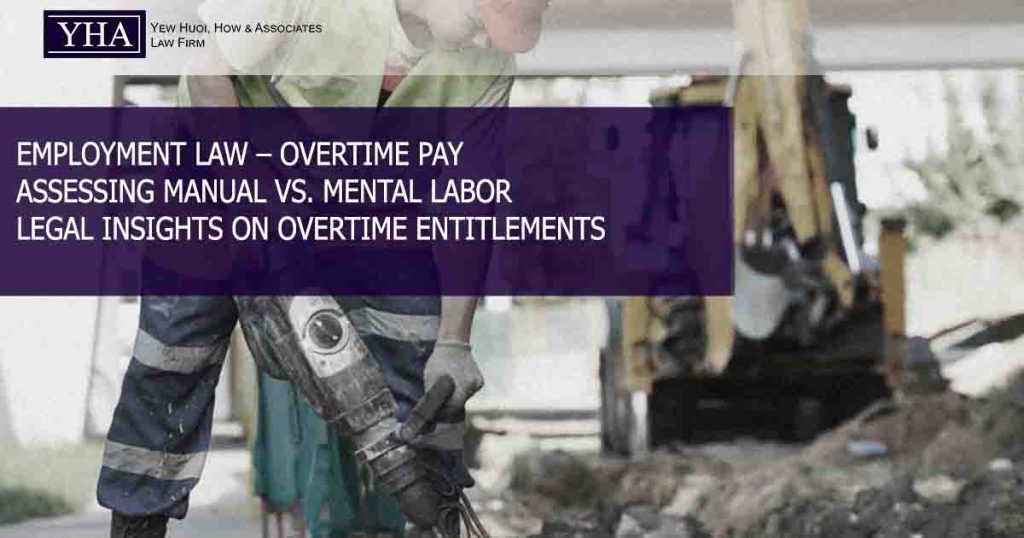ILLUSTRATIVE SCENARIO
X is a supervisor storekeeper and Y is a maintenance technician, both employed by Z. X’s responsibilities include approving leave applications and supervising subordinates, while Y’s duties involve handling machinery and resolving technical issues using his skills.
X and Y filed a complaint with the Director-General of Labour under section 69 of the Employment Act 1955 (“the EA 1955”) alleging that Z failed to pay them overtime at the prescribed rate. The Director-General dismissed their claims, stating that neither X nor Y were engaged in “manual labour” as defined by their employment terms. Dissatisfied, X and Y appealed the decision.
The key issue is whether X and Y’s work primarily involved physical labor with minimal mental effort or whether their tasks required significant application of skill, knowledge, and experience, with only incidental manual effort.
LEGAL PRINCIPLES & LAW
- Section 2 of the EA 1955: Defines an ‘employee’ to include ‘any person or class of persons included in any category in the First Schedule’. According to subsection 2(1) of the First Schedule, an ‘employee’ is someone engaged in manual labour.
- Legal Precedents: It is challenging to separate manual labor from mental labor, as most jobs involve both physical and mental effort.
- Primary Test: The test to determine if a person is ‘engaged in manual labour’ is based on the dominant or primary effort involved in the work, as opposed to incidental or ancillary effort.
- Dominant Effort: ‘Dominant’ means that more than half of the total work time involves the primary effort (as specified in subsection 2(1) of the First Schedule in EA 1955).
APPLICATION TO SCENARIO
- Given that X and Y’s roles involve significant mental effort, the appeals against the Director-General of Labour’s decision are likely to be dismissed. Both individuals use their intellect and knowledge more extensively than the physical movements required to execute their tasks.
REFERENCE CASES
- Md Zaini bin Abdullah & Ors v. Panasonic Automotive Systems [2022] 10 MLJ 23
- Colgate Palmotive Sdn Bhd v. Cheong Foo Wenf [2001] MLJU 719; [2001] LNS 394
- Chareon Pakphand Jaya Farm (M) Sdn Bhd v. Chung Lin [2006] 1 CLJ 784

